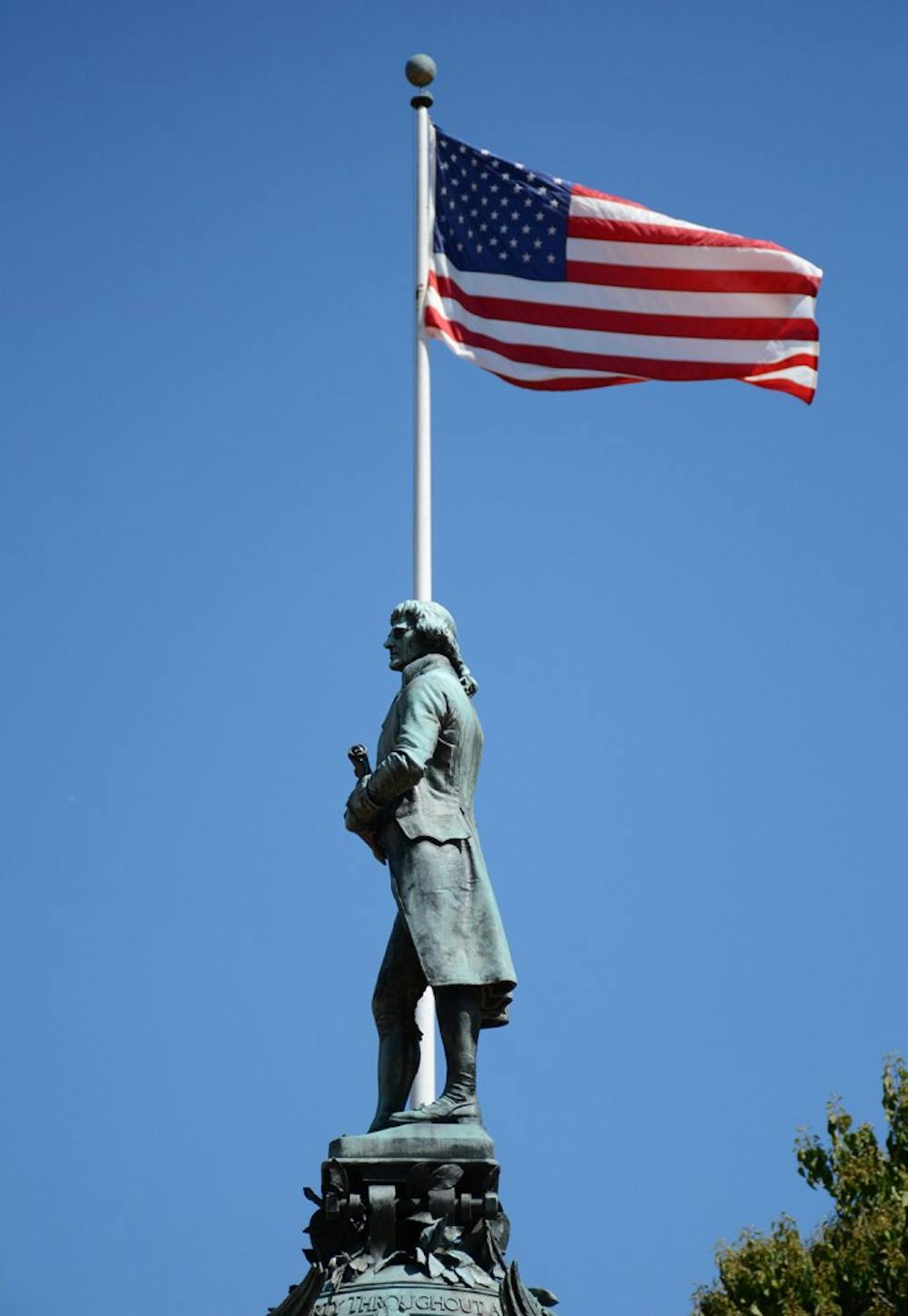A letter from 469 professors and students asking University President Teresa Sullivan not to quote Thomas Jefferson in emails has ignited fierce debate nationwide. The letter questioned the appropriateness of quoting Jefferson given his association with slavery. While quoting Jefferson is more appropriate on some occasions than others, it is unreasonable to ask administrators to refrain from quoting their school’s founder altogether.
Jefferson is deeply embedded in our history. As a result, we often use his writings as a reference to our institution’s core values. However much we may disagree with his actions or beliefs, Jefferson and our University today are inextricable.
Still, context is important in determining whether something is appropriate, and this letter was intended to address the concerns of people historically and presently excluded. This point is particularly relevant given that Sullivan’s email was specifically intended to underscore the importance of unity after a contentious election outcome. Since Jefferson is such a pertinent figure at our University, we are often quick to invoke him before fully considering how doing so affects the very message we are attempting to communicate. There is clearly a significant contingent of people within our community that felt quoting Jefferson undermined the email’s intended message. Administrators should be judicious about how the complexities of Jefferson’s legacies may affect messages that they want to convey. On the other hand, in this case, we did not find the use of this quote to be particularly offensive in a message about the need for political civility.
In her email, Sullivan noted the progress our country has made since Jefferson’s time, and quoted him as saying University students “are exactly the persons who are to succeed to the government of our country, and to rule its future enmities, its friendships and fortunes.” Undoubtedly, Jefferson would not have envisioned including the vast majority of University students who are here today in this message. But that does not mean these words do not apply now. While we may struggle to find it, there is a middle ground between condemning Jefferson’s history and making use of his legacy for positive change.







